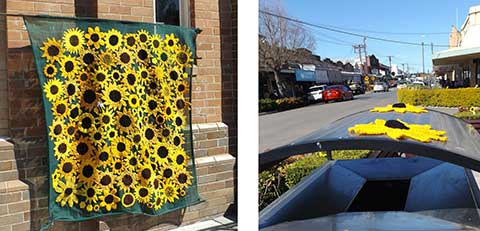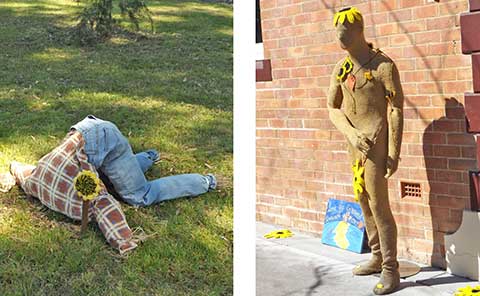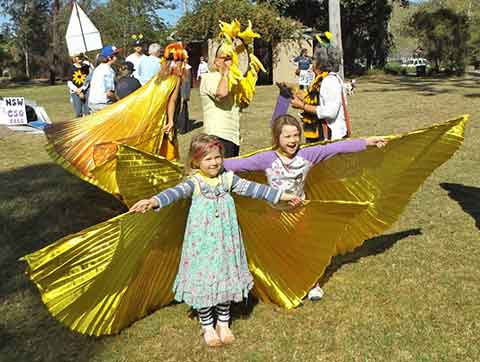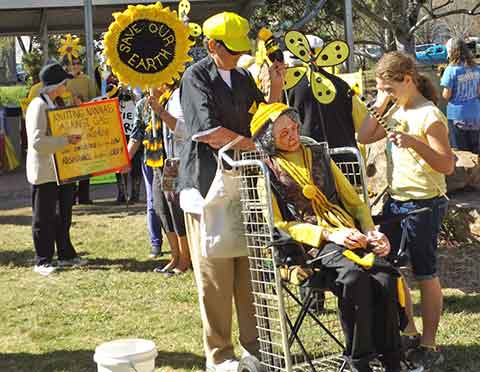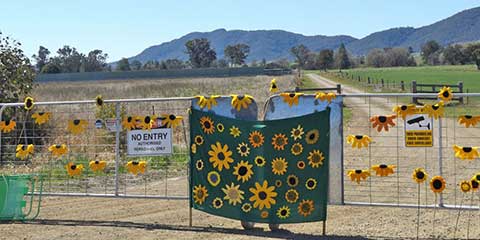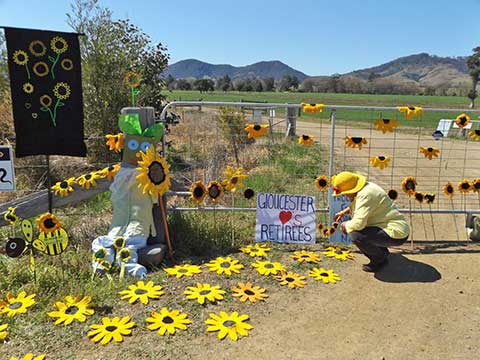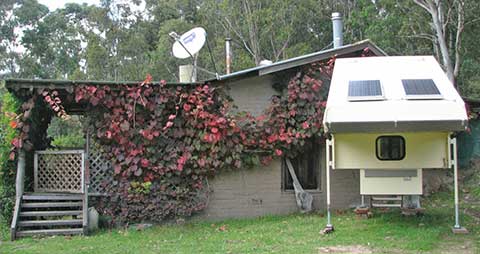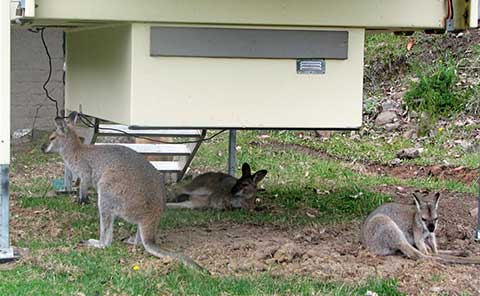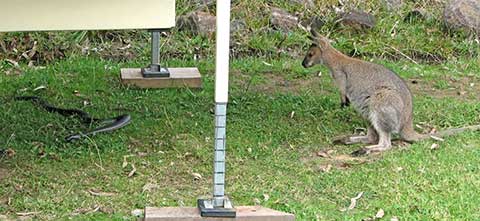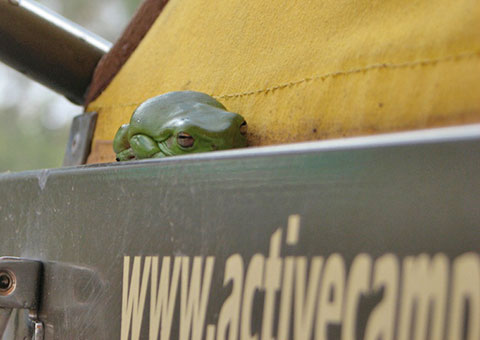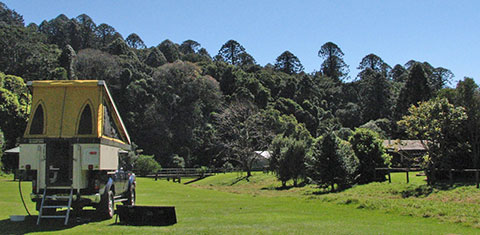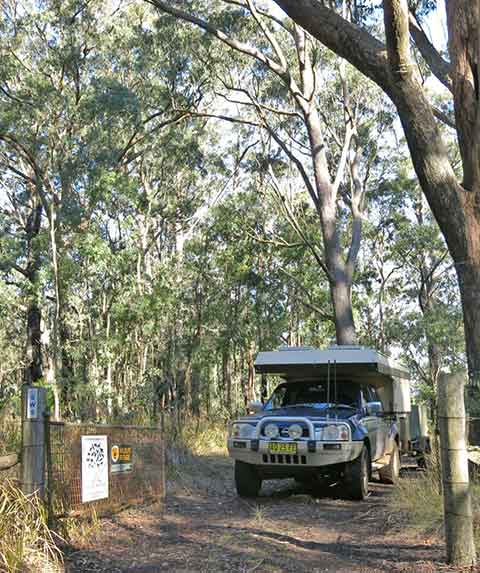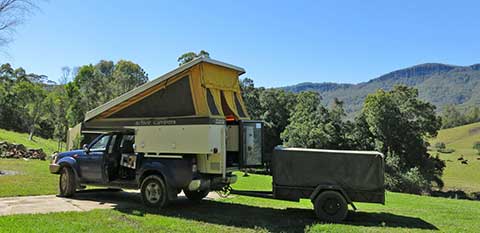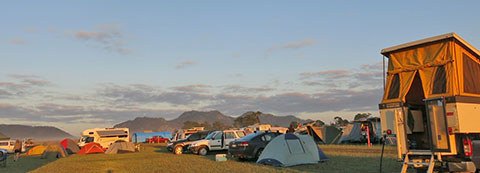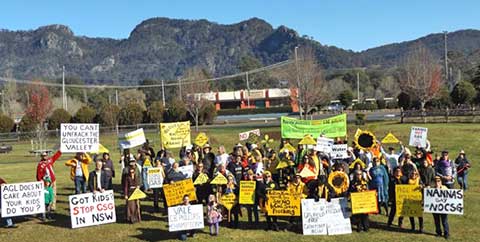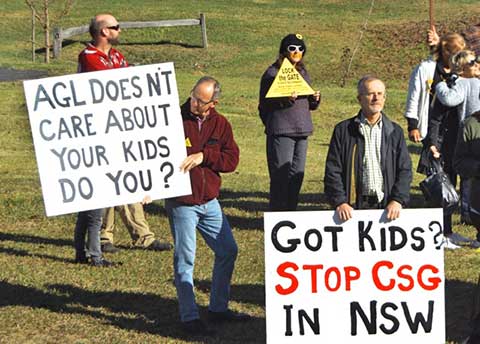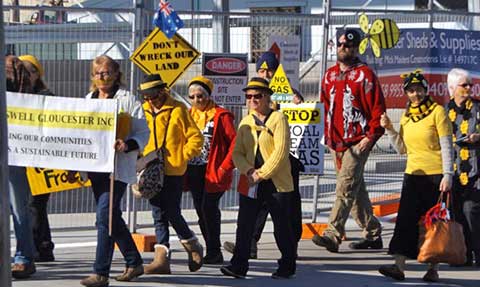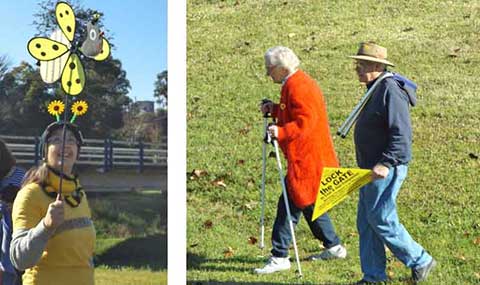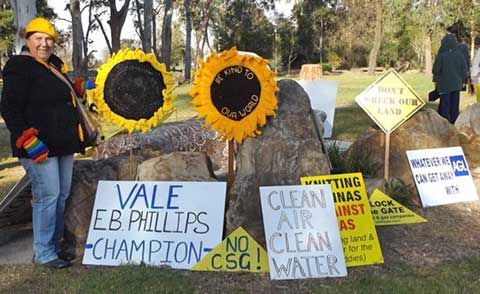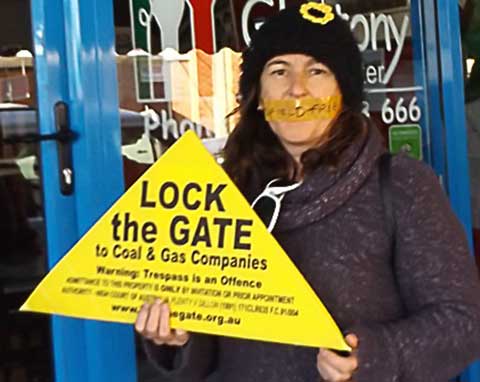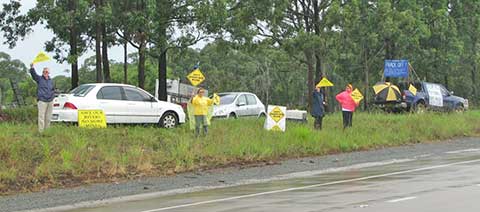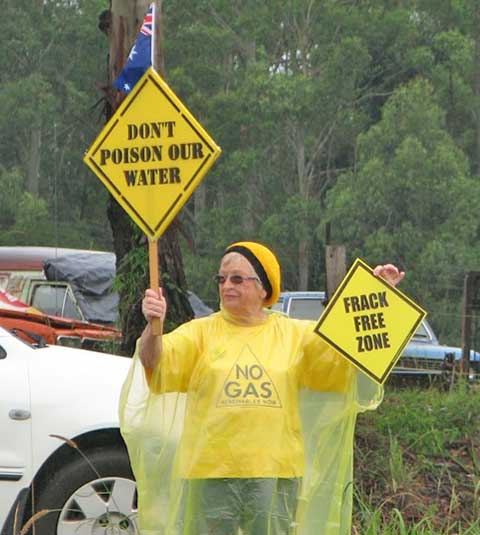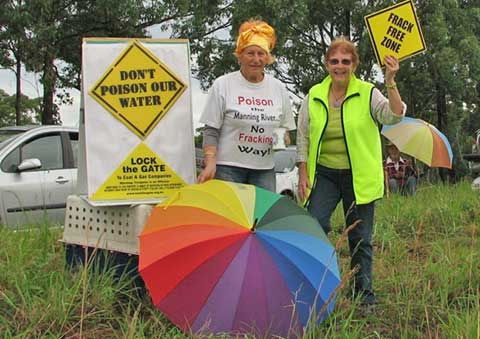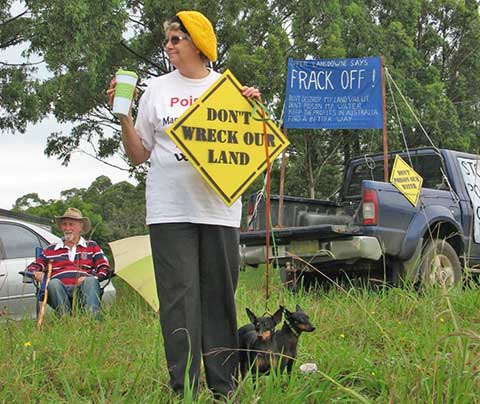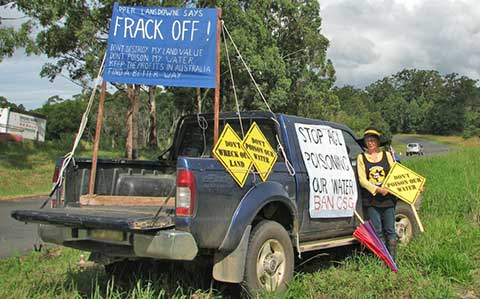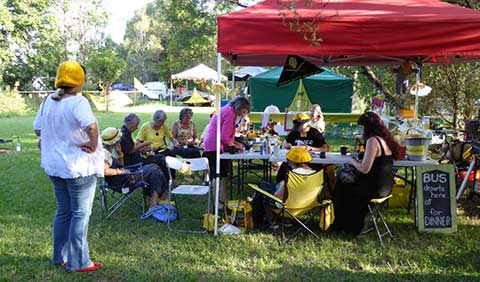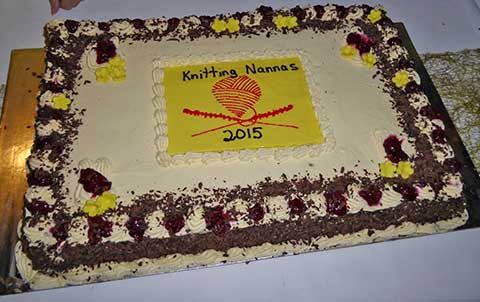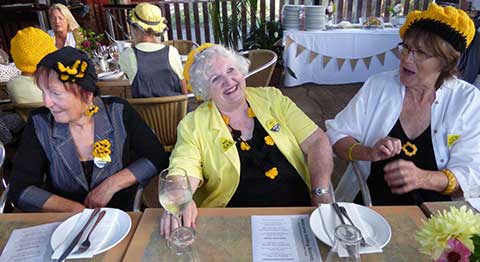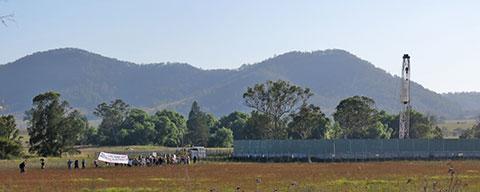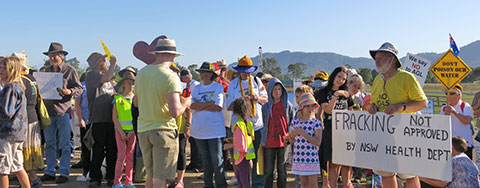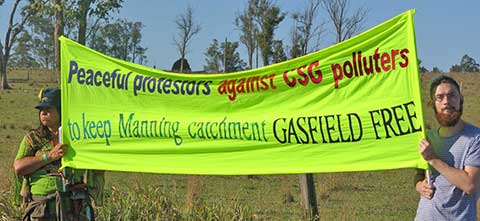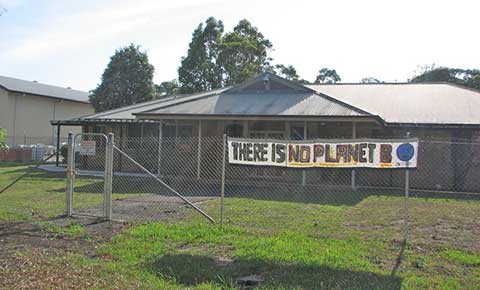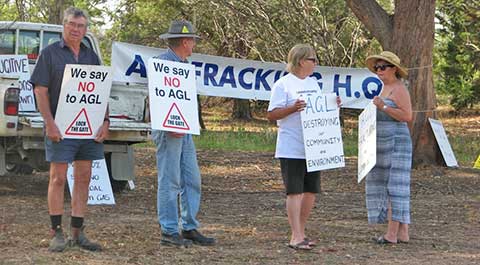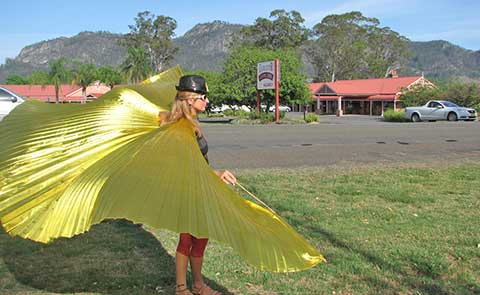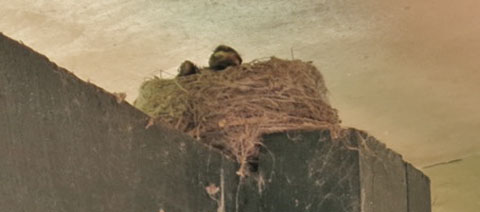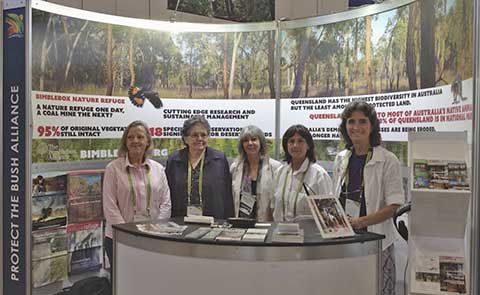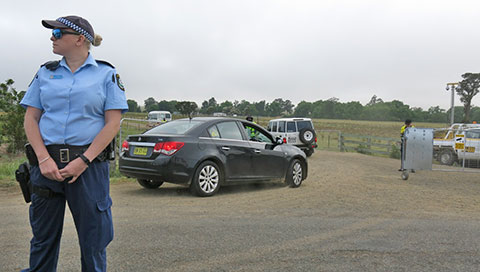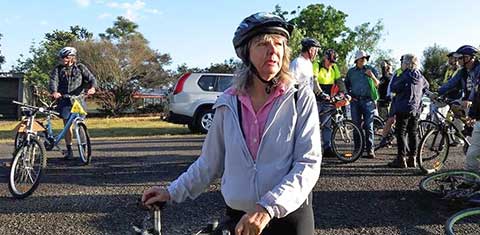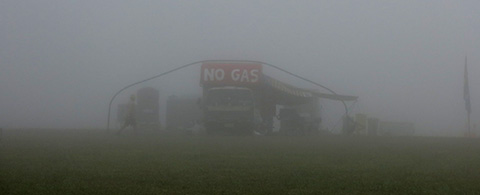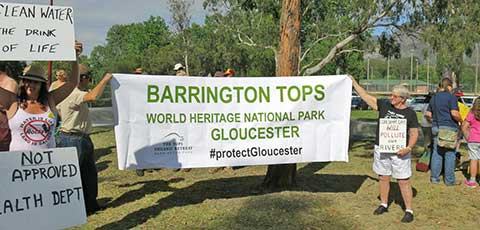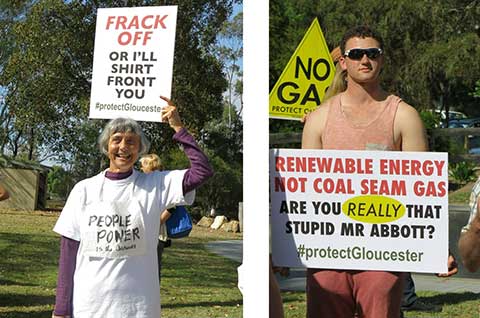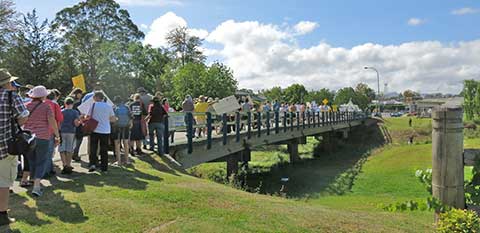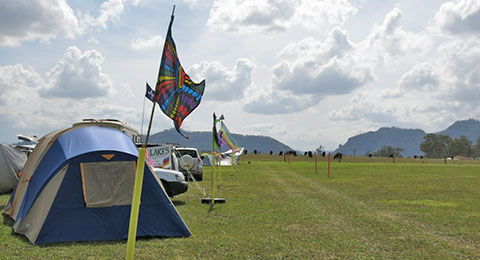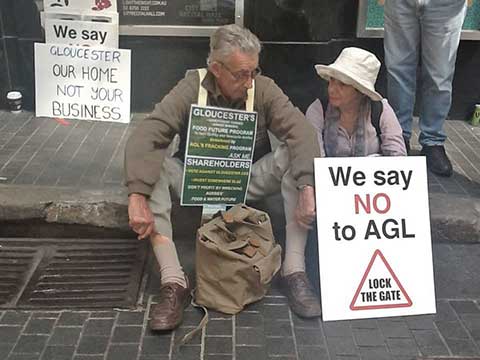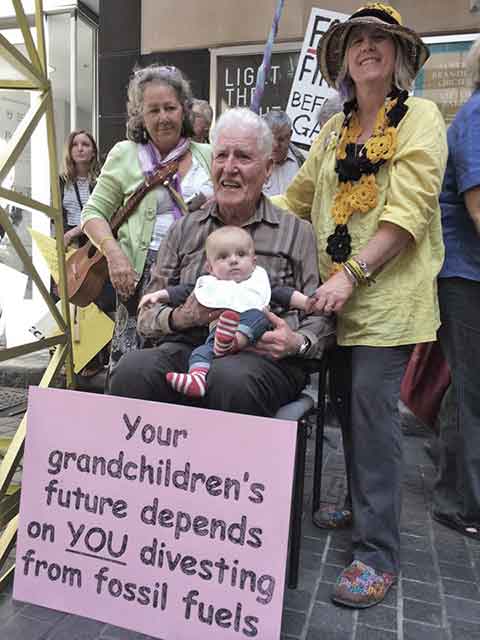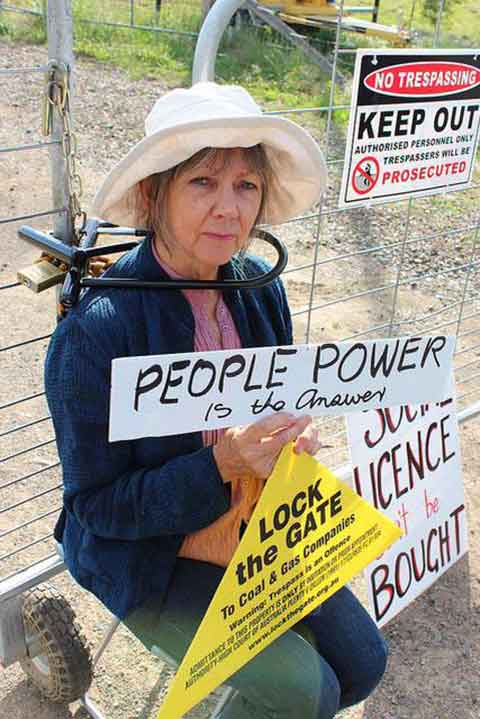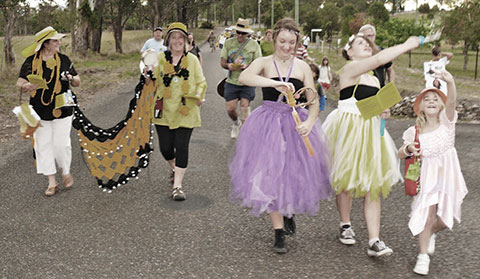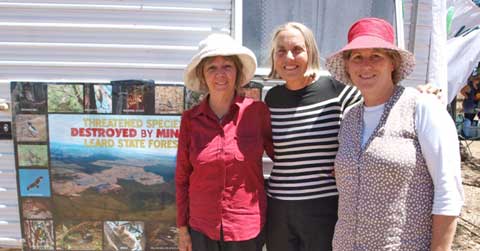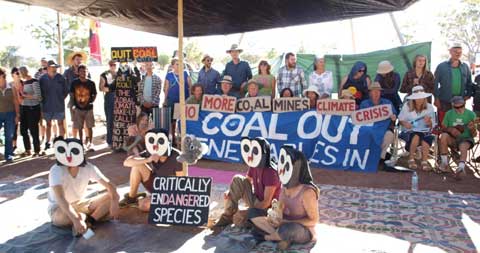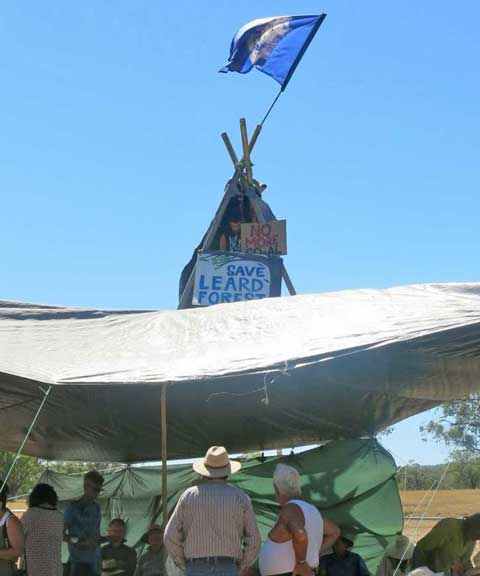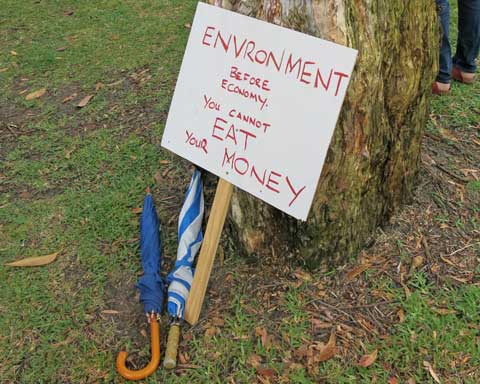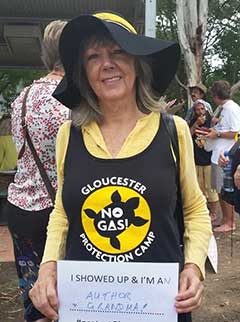 In mid-December last year, after AGL had fracked the four wells at their Waukivory Pilot CSG project at Gloucester, the Protectors Camp that I was visiting went into recess, but not before one intrepid protector followed the tankers carrying the contaminated wastewater to find out what they were doing with it, as AGL had not replied to questions about this. She followed them to Newcastle, where Hunter Water had forbidden AGL to bring the stuff.
In mid-December last year, after AGL had fracked the four wells at their Waukivory Pilot CSG project at Gloucester, the Protectors Camp that I was visiting went into recess, but not before one intrepid protector followed the tankers carrying the contaminated wastewater to find out what they were doing with it, as AGL had not replied to questions about this. She followed them to Newcastle, where Hunter Water had forbidden AGL to bring the stuff.
Of course it wasn’t AGL’s fault that it got dumped in the Hunter sewerage system; it was the contractor’s.
Although Hunter Water had directed AGL not to even use a Hunter contractor…
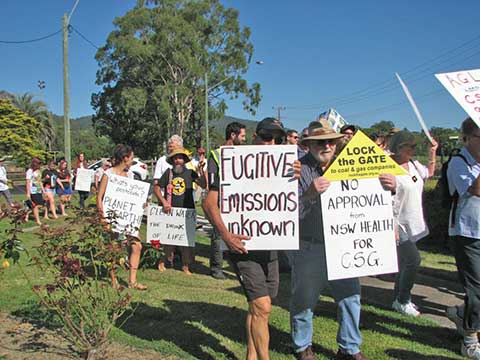
So began a lovely series of revelations as to how AGL run their show and how low is the standard of what this industry calls ‘world class regulation’.
I have often repeated what the industry admitted in 2011, that ‘good management could minimise the risks of water contamination, but never eliminate them’.
Here’s the latest run of reasons why Groundswell Gloucester’s 2014 pre-fracking 79-page advice to government, ‘Exposing the Risks’, ought to have been heeded. ‘Good management’ is NOT what has happened at Gloucester.
During the fracking, it was discovered that AGL was using a radioactive element, Caesium-137, to measure the density of fracturing fluid. This had not been part of the approval process. Trust us, we’re a gas company??
Then two fracking chemicals, Tolcide and Monoethanolamine, indicators of likely other chemicals, were found in groundwater.
AGL’s licence requires zero presence of these chemicals. AGL knew that zero limit was exceeded in November, yet they kept fracking and didn’t tell the EPA until Jan 15.
Professor Philip Pells has said all along that at Gloucester there is a high risk of an environmental disaster. He considered it likely that fracking would connect the coal seam’s polluted water with the beneficial shallow aquifers. ‘Adaptive management’ is what AGL was approved to use, to ‘suck it and see’; which always meant it would be too late to do anything after the disaster occurs, as it has.
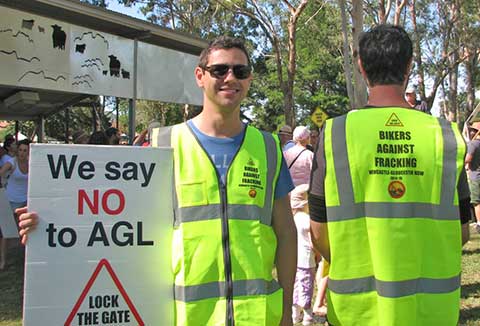
Then AGL admitted large fluctuations of groundwater levels at its monitoring bores; they don’t admit fracking is the fault but levels at one bore varied as much as 7.8 metres during the fracking and 3.5 metres after it.
Next they found toxic BTEX chemicals in flowback water at two of the wells and an above-ground storage tank. AGL discovered the chemicals on January 15, but only reported them to the EPA almost two weeks later.
Associate Professor Stuart Khan, from the University of NSW, says while the four main BTEX chemicals — benzene, toluene, ethylbenzene and three forms of xylene — occur naturally in coal seams no one wants them turning up in drinking water. Benzene is a known carcinogen and Australian drinking water guidelines restrict it to one part per billion.
AGL denies using BTEX in its fracking. ‘The reported concentration of 555 [parts per billion of BTEX for one AGL sample] is very high and probably the highest concentration I have heard of in environmental water,” Dr Khan said.
After this avalanche of bad PR, AGL suspended the Waukivory Pilot Project, then the government did so too. Division of Resources and Energy investigators will inspect the four CSG wells with their counterparts from the NSW Environment Protection Authority.
Just two months of world class management of four wells. Imagine 110, and then 330 wells?
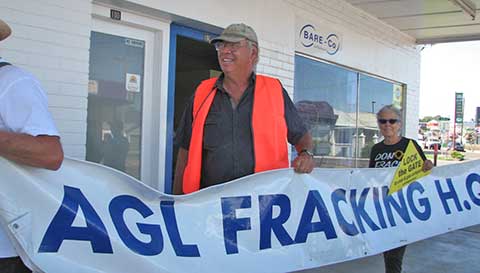
But don’t worry, there will be a ‘robust’ investigation and Minister Roberts has appointed Ms Lee Shearer to oversee it; Groundswell Gloucester doesn’t question her abilities, but her past role as a consultant to the mining industry, including ‘managing crisis situations’, does raise concerns about her total independence…
AGL’s new wastewater contractor was taking it to South Windsor; the Hawkesbury area was not too happy about it, and now that treatment plant will not accept AGL wastewater either. So what is their solution?
Local National Party candidate Stephen Bromhead has been saying that “If it is found that AGL cannot demonstrate that they can prevent BTEX escaping from the coal seam their license for the Gloucester Basin will be cancelled and no new applications will be approved.”
Sadly people cannot hear such promises without looking for the post-election wriggle room. Who could forget O’Farrell’s ‘no ifs, no buts, a guarantee’ re mining in water catchments?
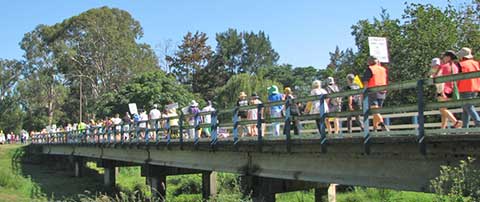
I joined Gloucester folk on the first 2015 No Stopping Gloucester walk through town: we had about 100 there.
(These are held the second Saturday of each month to coincide with the local Growers’ Market; 9 am at Billabong Park.)
The next Tuesday I returned when Groundswell Gloucester publicly presented a new 600pp document, ‘Exposing the truth’, how AGL has failed to consult or report donations and has misled the community. It asks Minister Roberts to suspend AGL’s Licence and was delivered to him on 5th February.
AGL has now admitted what I was quoting BHP Petroleum as saying several years ago: there’s enough LPG in the Bass Strait reserves to avoid gas shortages in NSW. There goes the doomsday scenario justification for rushing to open up more risky unconventional gas fields for LNG. We don’t need to poison or dewater Gloucester and the Manning — or the Pilliga and the GAB, or anywhere.
AGL wants to start three test wells at Wards River south of Gloucester next. Gloucester Council has withdrawn from the dialogue with AGL and has asked the Minister to cancel its licence.
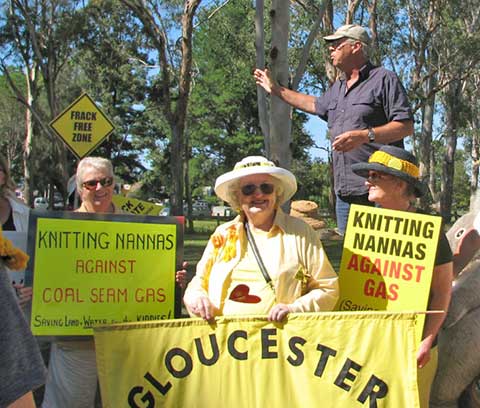
Meanwhile, the new CEO of AGL has foreshadowed a ‘comprehensive review’ of AGL’s upstream gas operations, and Citibank has warned that ‘negative connotations’ around AGL’s Gloucester coal seam gas project risk harming the company’s brand, and says the company should consider ‘walking away’’ if public perception doesn’t improve.
Citibank said that while the introduction of a new CEO meant it was a ‘good time to try and change public’s perception’ of AGL and Gloucester, ‘given the strength of local opposition, this will be a very difficult task’.
Citibank is spot on there. Take a look at this latest in Groundswell Gloucester’s series of short films of Voices from Gloucester (by David Lowe).
